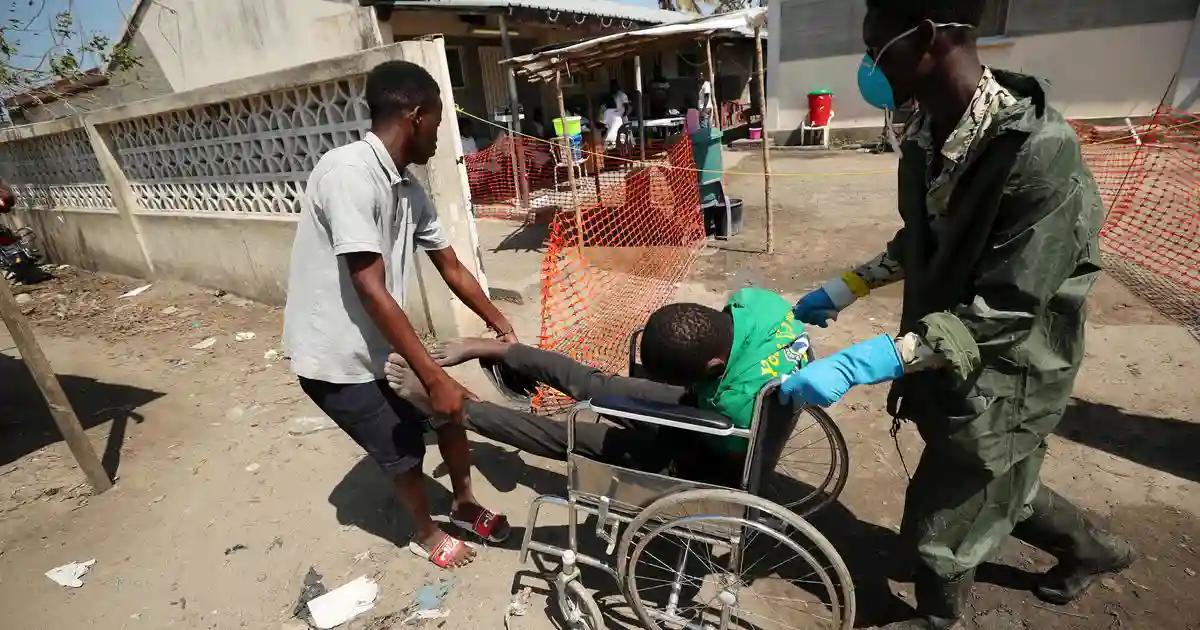Africa-Press – Zimbabwe. The Health and Child Care Ministry in Zimbabwe has reported a concerning increase in cholera deaths. As of Monday, there have been 108 suspected deaths and 5,030 new cases. The outbreak has been reported in 41 districts, with Buhera and Gutu being the most affected areas. Manicaland has the highest number of confirmed cases, followed by Matabeleland South and Harare, NewsDay reported citing the Ministry’s report. The outbreak has also been recorded in other provinces including Midlands, Mashonaland Central, Mashonaland West, Matabeleland North, and Mashonaland East. Read the report:
Fifty-five new suspected cholera cases, (1) suspected death and (0) laboratory-confirmed results were reported today (Monday). The cases were reported from Gutu (26).Buhera (10), Bikita (7), Chipinge (5), Chiredzi (5) and Mutare (2).
As of 16 October 2023, 97 cases are hospitalised at Bikita CTC (13), Zaka (5), Chiredzi (4), Gutu (19) in Masvingo Province, Buhera (33), Chipinge (17),Mutare Rural (2) in Manicaland Province, BRIDH (2) in Harare Province and Thorngrove (2) in Bulawayo.
Measures to combat cholera
The government of Zimbabwe has implemented several measures to prevent the spread of cholera. These include banning church camp meetings, open markets, and communal beer gatherings. Health experts are urging the government to declare the current cholera outbreak a national disaster, emphasizing the need for urgent action to address the situation. Community Working Group on Health executive director Itai Rusike said:
The outbreak is now spreading to other provinces and government may consider declaring the cholera outbreak a national disaster so thata wide range of agencies can come in to support the government with health promotion, treating cases and carrying out case tracing and that may result in reducing case fatalities.
Rusike emphasised the importance of implementing lasting solutions to tackle cholera in Zimbabwe, including providing clean and safe drinking water. Johannes Marisa, the president of the Medical and Dental Private Practitioners Association of Zimbabwe, supported this view, stating that efforts to contain cholera would be incomplete without improved water sanitation and infrastructure.
The Ministry of Health in Zimbabwe has provided a list of measures to combat cholera and other waterborne diseases. These measures focus on hygiene practices and prevention strategies. They include washing hands with soap and clean water, informing health workers about suspected cases, avoiding handshakes at public gatherings, drinking boiled or treated water, washing fruits and vegetables before consumption, using toilets instead of open defecation, cooking food thoroughly, seeking medical attention promptly, and maintaining good personal hygiene. The ministry emphasizes the severity and fast-acting nature of cholera, urging individuals to take preventive action and seek immediate treatment if suspected. Additionally, they advise taking salt and sugar solution if cholera is suspected while en route to a health facility to prevent dehydration. These measures aim to control the spread of cholera and protect public health.
The cholera outbreak in Zimbabwe started in February in Chegutu, Mashonaland West province, and has now spread to various other areas including Buhera, Chikomba, Chimanimani, Chipinge, Chitungwiza, and more. The country experienced a severe cholera epidemic in 2008-2009, affecting nearly 100,000 people and causing over 4,000 deaths, making it the worst outbreak in Zimbabwe’s history.
For More News And Analysis About Zimbabwe Follow Africa-Press






